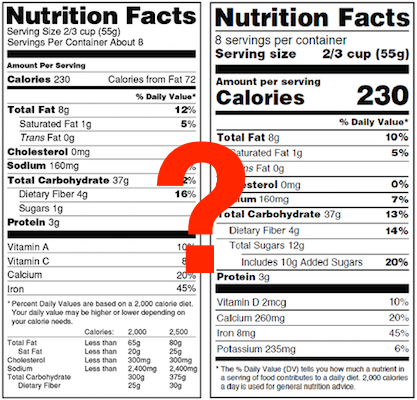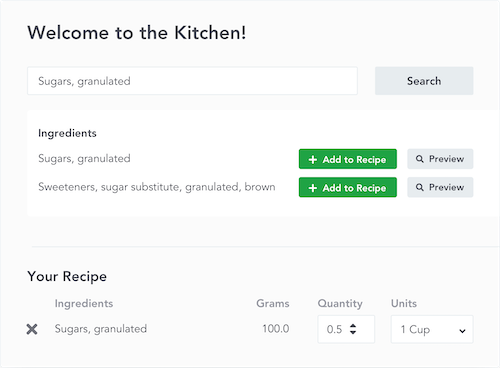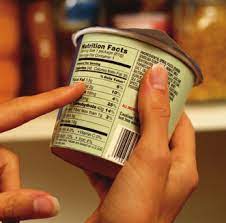Guest Post: Talk the Talk with Food Co-Packers
There's a language for everything, and knowing the right one makes all the difference in where and how far you can go. Matt Suggs knows co-packing, and he also knows that if you plan to work with a co-packer, you need to learn how to talk the talk. Matt's sharing his insider tips, learned from working with thousands of co-packers and even more food companies looking for co-packers, so that when you start the conversation you won't be speaking a different language.
We also have a few related posts you might find useful as companions to this article for the various stages of thinking about, finding, and securing a co-packer: To Self-Manufacture or Co-Manufacture, How and When to Find a Co-Packer, and 7 Tips to Successfully Transition to a Larger Food Production Space.
Without further ado, here's Matt with his insights for you:
The Question. . .
The food industry is red hot with innovation. New entrepreneurs are hungry to start their own food product. Which is awesome! The more great products on the shelves, the better it is for all of us. But how do you get there?
How do you grow that great product idea from your home kitchen or incubator to the full scale needed to share your product with the rest of the world?
The Answer. . .
Co-packing! Well, actually there is a bit more to it than just that, but whether you have a salad dressing, granola bar, coffee drink or a new candy product, the best way to get your product produced or packaged at a large scale is by using a contract manufacturer or “co-packer."

Co-packing lets you produce at scale.
About The Industry
The contract manufacturing industry is big. According to Rabobank Research, it accounts for upwards of 20% of total food production in the US and is growing faster than food manufacturing itself. More and more food and beverage entrepreneurs are realizing that it’s much easier to find a certified co-packer to produce their product than invest in their own equipment, warehousing, staff and so on. As an entrepreneur, it really is a no brainer!
The Reality
However, what most people don't realize is that these co-packers receive hundreds of new leads every month from entrepreneurs wanting to get their new hot product produced, packaged and out to market. And the reality? Most of those startups won’t make it past their first pilot run. It’s sad but unfortunately true.
That said, most co-packers are very particular about who they work with. They want to work with a company that has the potential to grow and bring them continued business year over year. It’s a big commitment for a manufacturer to bring on a new client. Therefore they want to be sure it’s the right fit and that it will be a successful partnership going forward.
The Key
So, you have to differentiate yourself from the masses. And how do you do that? It is important that you SELL a potential co-packer on you, your product and your business!
Our advice — Do your homework and Learn the Language!
It’s important that you know how to talk the talk when you begin conversations with a co-packer. The one thing co-packers don’t want to be or have time to be is your teacher. They want someone who clearly knows what they are doing. It’s okay to be a startup, but make sure they don’t feel like they are going to have to waste time educating you on the process.
Make sure you know what you are trying to produce. Although some co-packers have in-house product development teams to help you perfect your formula, they still expect you to have some product direction.
Have answers to these questions before you begin discussions with your potential co-packer:
- What is your expected volume on your first run?
- How many different SKU’s?
- What does your scale-up model look like?
- How are you paying for this?
Concrete Examples of Good and Bad Co-Packer Inquiries
We have found at PartnerSlate that the brands that have more specific details in their co-packer inquiries receive much higher response rates.
This type of inquiry unfortunately isn’t going to get you very far.
"I think I want to make and sell a new granola bar, I am just starting out and wondering what you can offer? I have never done this before and have a very small budget." (Product Type: Granola Bar; Volume: Small/Not sure; Number of SKUS: ??)
It has plenty of red flags (not sure how much to produce, not sure how many products to produce, not sure what they're asking for, not sure if they even want to produce) to choose from that will turn off a co-packer, and this entrepreneur probably isn’t actually ready for a co-packer.
Here is an example of an inquiry that would be much more likely to get a favorable response:
"I am looking for a manufacturer to help me increase production of my granola bar. We have already had promising sales through our current 3 retail locations and are in talks with more locations if we can ramp up production. First run will be small with upward growth from there. Contact me to discuss further." (Product Type: Granola Bar; Volume: 10,000/SKU; Number of SKUS: 2)
The company in this example is clearly still an early stage start-up, but the difference is they have shown some proof of sales along with specifics on exactly what they are looking for. While this doesn't flash immediate dollar signs, a co-packer might see this as an opportunity worth exploring!
Know What You are Looking For
It’s a good idea to do some research on what types of equipment your product is going to require for both production and packaging. Talking to consultants or industry experts is a good place to start. Then, when talking with your potential co-packer, you can easily determine if they have the right equipment or are willing to invest in it for you.
You also want to know what you are expecting from your co-packer. They typically have a wide range of services. Do you just want them to produce or package your product? Or maybe you’ll need them to handle more operational duties? Many co-packers offer ingredient sourcing, logistics, warehousing and even order fulfillment.
It’s smart also to request that the co-packer run different cost scenarios for you. How much will a turnkey (all included) process be vs just manufacturing or packaging (where you handle sourcing, logistics and everything else)? There are upsides to both and therefore it's important to weigh your options.
Certifications and Matching Size
Make sure you know what certifications are important to you and your product. One of the best aspects of using co-packers is they already have many of the highly regulated certifications in place that brands (and customers) require these days. Whether it’s USDA, GFSI or SQF - be ready to ask your co-packer about any and all necessary certifications.
William Madden from Right Brain Consulting mentions in his book Separating the Con Man From the Co Man: How to Source a Contract Food Manufacturer that one of the most important things to keep in mind when picking a co-packer is matching company size. You don't want a co-packer that is too small or too big. You want someone that is similar in size to you. If they are too small you might be their only customer (which isn’t good because you don’t want their livelihood dependent on you), and if they are too big, you are a small fish in a big sea, in other words dispensable, which isn't ideal either. Discuss their capacity and how you will fit into their current customer base. And understand that if all goes according to plan you'll probably outgrow your co-packer.
Get Them Excited!
It’s important to remember that your co-packer is one of your most IMPORTANT partners. Without the right co-packer, it will be very hard to be successful. So get them excited about your product! Clearly present your short-term and long-term goals and make sure the co-packer is sold on your business. If they believe in your product as much as you do, they will do everything they can to help you grow.
A Final Word
Unfortunately, shopping around for the right co-packer isn't like other industries where they might hold your hand and beg for your business. It’s really the other way around. So when you are ready to outsource your production, be prepared. Know your stuff and it will be a lot easier to find the right partner!






